Description
February 18, 2023
Vuelta a Andalucia Ruta Ciclista Del Sol 2023 – Stage 4 – Olvera – Iznájar : 164,8 km
Since its first edition in 1925, the Vuelta a Andalucía has typically fallen at the start of the year and served up an opportunity for pro riders from all over the world to kickstart their road racing seasons with a bang.
Show more...
February 18, 2023
Vuelta a Andalucia Ruta Ciclista Del Sol 2023 – Stage 4 – Olvera – Iznájar : 164,8 km
Since its first edition in 1925, the Vuelta a Andalucía has typically fallen at the start of the year and served up an opportunity for pro riders from all over the world to kickstart their road racing seasons with a bang. At 97-years-old, the Vuelta a Andalucía is one of the oldest stage races in Spain. It’s also one of the most prestigious and despite only being ranked as a 2.Pro event by the UCI, winning it is considered to be a major achievement. The race often runs for five days, touring much of the mountainous province of Andalucía. The mountain stages in the final few days routinely dictate the race, making it the preserve of world-class climbers and stage racing specialists.
Tadej Pogačar (UAE Team Emirates) took his third win in four stages at the Vuelta a Andalucía, outdoing Enric Mas (Movistar) to soar to victory at the hilltop finish in Iznájar.
The pair had leapt from what remained on the peloton on the penultimate major climb of the day, 12km from the line and, despite being caught by several chasers inside the final 3km, went once again on the uphill run to the line to contest the victory amongst themselves.
Mas’ acceleration saw Mikel Landa (Bahrain Victorious), Lorenzo Rota (Intermarché-Circus-Wanty), and Andreas Kron (Lotto-Dstny) drop off the back in the final kilometre. However, it was Pogačar who matched him pedal stroke for pedal stroke before coming past on the narrow roads inside the final 100 metres to record his fourth win of the season.
“Today was a really hard day. We had a big crash in the beginning where Rafał Majka fell hard and the group split,” Pogačar explained after the stage. “Everybody tried to attack us from the start. It was hard to control. The guys did an amazing job.
“Once the break formed it was still dangerous and we tried to control it. We worked so hard and I was really happy to take the win because the guys deserve it. The team is perfect but we’re getting tired because everybody tries to attack us. From the start, they tried to put us in a weak spot.
“The possibilities [to win] are good but tomorrow is still a really hard day. If it’s like today we need to be prepared from the start and keep focussed.”
After a day of work by his UAE Team Emirates, team and race leader Pogačar joined Mas in flying past the final breakaway man Pavel Sivakov (Ineos Grenadiers) on the Alto Fuentes de Cesna after Matej Mohorič (Bahrain Victorious) had launched hostilities.
The pair flew down the descent together but weren’t alone as they raced into Iznájar. However, the duo were clearly the strongest men on the day and dispatched with their companions swiftly as the gradients bit before Pogačar showed his top form once again on the run to the line.
The Slovenian now leads the GC battle by 1:14 from Landa, who jumps above teammate Santiago Buitrago in the standings. For all his efforts, Mas remains in fifth overall at 1:54.
How it unfolded
The penultimate stage of the Vuelta a Andalucía would bring with it another batch of hills for the peloton to contend with, as organisers had threaded the route across four classified climbs, more besides, plus another uphill finish on the 165km road from Olvera to Iznájar.
Much of the stage’s climbing would be packed inside the final 60km of the day, with the third-category Alto Fuentes de Cesna (4.3km at 4.7%) a pivotal point ahead of the final kilometre-long ramp to the finish 11km later.
The early third-category Puerto de Algámitas (5.8km at 3.1%) looked a prime place for the day’s breakaway to jump off the front, but it would be a little more complicated than that, as Pierre Latour (TotalEnergies) and Igor Arrieta (Kern Pharma) would find out.
The pair had ventured out front on the hill, but both were brought back by the time the riders had hit the flat road after the descent.
Groups would ebb and flow in front of the peloton over the next 40km, with the riders eventually speeding past the 100km to go mark all together in the peloton as UAE Team Emirates controlled the situation.
The team had been caught in a crash at the start, with Polish climber Rafał Majka affected, while a number of their rivals put the pressure on during the early stages.
Bahrain Victorious rider Matej Mohorič was among those who had tried several times to get away in a move, but the Slovenian wasn’t in the picture when the break eventually did go clear with 90km to run.
Ruben Guerreiro (Movistar), another previously active rider, did make it, though. He was joined in the break by teammate Gonzalo Serrano as well as 12th-placed man Pavel Sivakov (Ineos Grenadiers).
Matteo Sobrero (Jayco-AlUla), Dion Smith (Intermarché-Circus-Wanty), Pascal Eenkhoorn (Lotto-Dstny), Jefferson Cepeda (Caja Rural-Seguros RGA), Edoardo Zambanini (Bahrain Victorious), Lionel Taminiaux (Alpecin-Deceuninck), Hugo Houle (Israel-Premier Tech), and TotalEnergies pairing Dries Van Gestel and Edvald Boasson Hagen also made the attack, which swiftly built a two-minute lead as UAE continued to control behind.
The break would spring into life on the approach to the next third-category climb of the day, Serro de San Cristobal, at 56km from the finish. An acceleration at the front split the group, leaving Zambanini, Serrano, Smith, and Taminiaux behind, while also putting a further 1:30 between the leaders and the peloton.
As a result, Sivakov vaulted in the virtual race lead, though it wouldn’t last long as UAE Team Emirates pushed the pace behind to close the gap back to two minutes as the riders passed the 40km to go mark.
Those dropped from the break earlier were reabsorbed by the peloton, meanwhile, as the leaders continued to lose time as they delved deeper into the hilly finale. At the second-category Alto de El Jaramillo (4.8km at 7.3%), the gap was under a minute as Sivakov accelerated off the front, splitting the breakaway up for good.
The Frenchman would be rejoined by Cepeda midway up before dropping the Ecuadorian and then seeing him come back once more on the descent. Back in the peloton only 15 men remained Cepeda was once again distanced at the 20km mark. Both he and Guerreiro were caught by the 17km mark, leaving Sivakov alone 40 seconds up the road.
His adventure drew to a close midway up Fuentes de Cesna. There, the attacks started to fly from the peloton with Mohorič and Pogačar leading a flurry of moves which resulted in the leader and fifth-placed Enric Mas (Movistar) fly past Sivakov at 12km to go.
The duo pushed on down the descent ahead of the select chase group of GC men, their advantage only a handful of seconds as they sped down towards the final climb to the line.
They wouldn’t stay alone for long, either, with Mohorič making the catch at 4km to go. Further back, a spill by Carlos Rodríguez (Ineos Grenadiers) held up half the break briefly, while at the 2km mark, the situation changed again with Mohorič going backwards on the hill before the finish as Landa, Rota, and Kron leapt across to the leaders.
From that point on it was all about the final ascent, and it was all about Mas and Pogačar. The Spaniard led the way with the first blistering acceleration, leaving all but the yellow jersey behind. At the line, though, it was the leader who would prove the strongest, finding a way past Mas on the narrow streets of the town to surge to win number three of the five-day race.
Results :














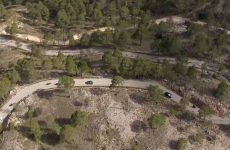
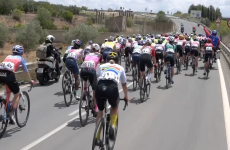
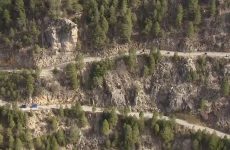
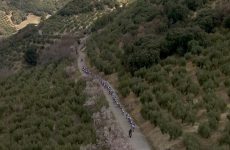

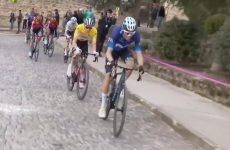
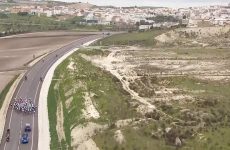
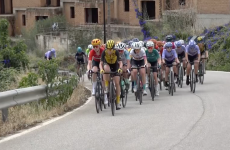
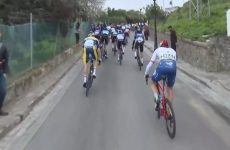
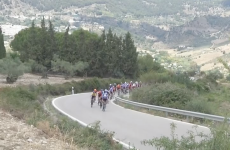
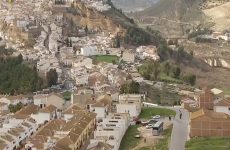
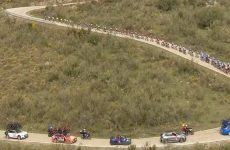
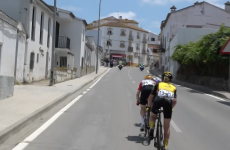
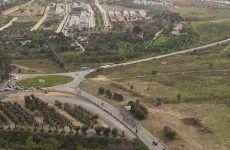
Grazie Fausto